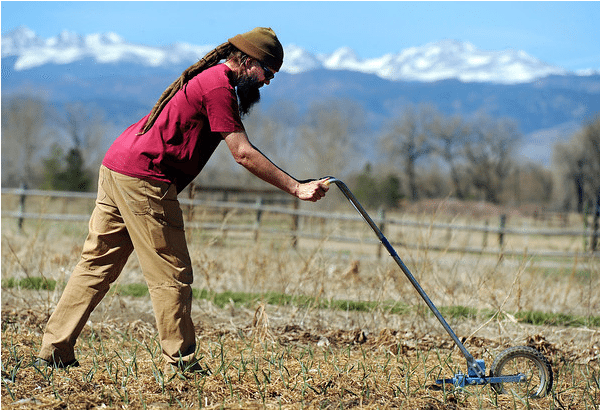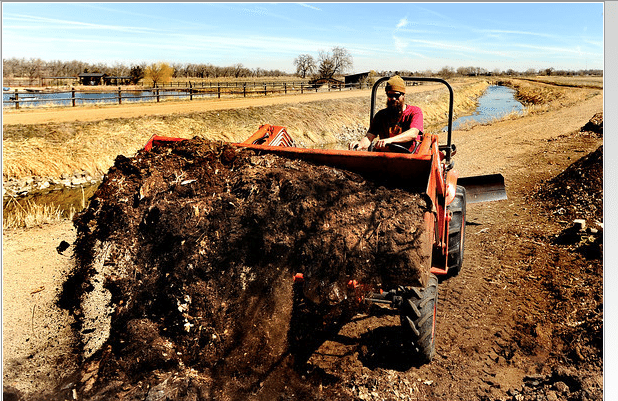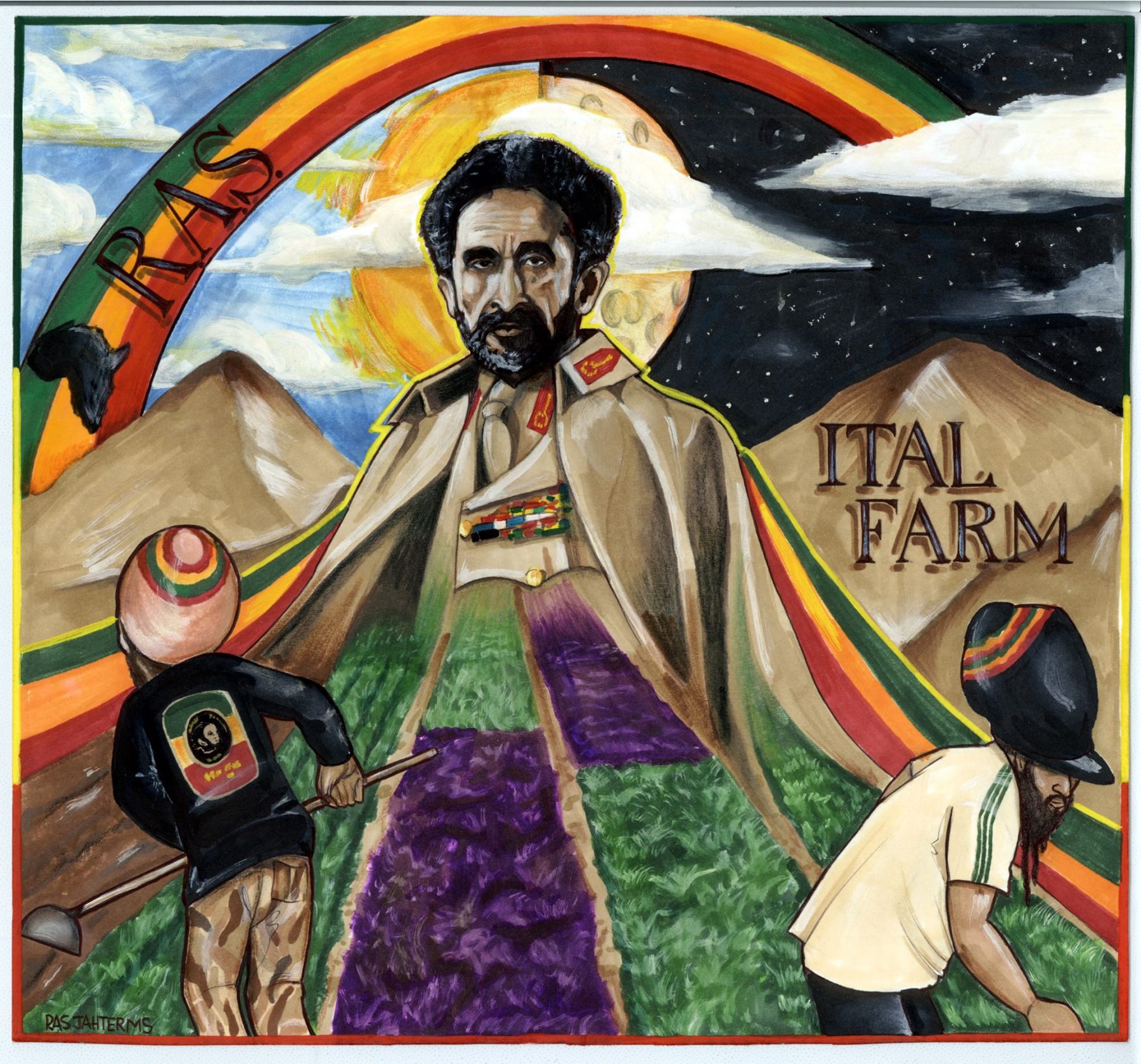Land and farming considered sacred

Garlic stems are pushing their arms up through the soil in the one-acre farm Adam Loovis tends in Lafayette. Adam and his wife, Alizah Loovis are co-owners of Regional Agriculture Supply (RAS) Farms. Established in 1998, the locally owned farm specializes in growing chemical-free fruits and vegetables utilizing Rastafari principals.
Adam Loovis explains that a core Rasta belief is that foods should be grown and consumed as close to their natural state as possible. Thus, RAS Farms uses no pesticides or synthetic fertilizers.
“For so many people the entry point (to Rasta) is music. I’m not in a band,” Adam says. Instead, he found his calling in farming, which was deemed a “sacred task,” by former Emperor of Ethiopia, Haile Selassie I, who is regarded as a holy figure and the reincarnation of Jesus by most Rastas.
“This is our sacred task. We took that to heart,” Adam says.
His wife, Aliza, adds: “Rastas tend to be in tune with vibrations and energy, says Alizah, “and when you’re out working in the land, you can really feel that.”
She says many believe it’s possible to put love into food preparation, and that love can be tasted in the dish
“That can begin even as planting and caring for different crops,” she says.
Laurence Spiewak, who buys fruits and vegetables from the farm, says he is impressed by the way the Loovis couple farms.
“The produce is cultivated with the heart,” he says. “(The family) treats the land with so much respect.”
Alizah produces a line of homemade, earth-friendly soaps for RAS Farms.
“We had some extra herbs at the farm, like mint and roses,” says Alizah, “We were saying ‘What are we going to do with all this?’.” Her answer was soap. Now, she makes batches weekly, the combinations dependent on the farm’s current herb availability.
” I have a little soap space in the house,” says Alizah, “I make it in small batches so there is no need for preservatives.

RAS Farms has been selling homegrown fruits, vegetables, herbs and handmade soap at the Boulder Farmers’ Market since 2004. This year, the farm is shifting its focus to Community Supported Agriculture, a system in which community members buy shares in the farm’s soap, fruit and produce. RAS Farms has teamed up with Conscious Coffees to offer a coffee share as well.
“Adam is the kind of farmer that believes in value,” says Conscious Coffee owner, Mark Glenn, “The family really grasps that simple is best and best is simple.”
Throughout the Spring and Fall, CSA members will receive the fresh products.
“We could be the first drive through CSA,” says Adam Loovis, noting the circle driveway that passes right by the farm’s garden. He is excited and expectant about this new step his family is taking.
Adam leans back on a picnic table overlooking a pond on the property his farm leases. A ponytail of dreds falls down his back. While attending college at the University of Maine, his original intent was to go pre-med. After taking his first anatomy class, he realized the profession wasn’t for him. What did draw him in was his work-study assignment: working on the university’s farm. His degree track became biology.
Using his college degree and Rasta inspiration, Adam and friend, Tom Buscaglia, decided to start RAS Farms.
“We almost promoted the farm like a band,” Loovis says with a laugh, reflecting on how he and Tom would attend Reggae concerts with RAS Farms stickers and shirts. “We were just getting it all out there.”
Years later, the stickers and shirts remain a part of RAS Farms’ income. “We get e-mails from all over the world. People are like, I was just at such and such event in California and I saw your shirt,” says Loovis. “It’s not fat cash, we sell a couple thousand a year.” A RAS Farms shirt peeks out from underneath his half zipped hoodie.
“Sometimes people look at you like you’re a little crazy,” said Loovis. He notes that at other times, though infrequently, people are drawn in, seeking spiritual connection. Above all, he says, people respond to the product that he and his family deliver.
The farm also has fostered several community connections from partnerships with yoga studios to coffee houses. The Cup in downtown Boulder provides RAS Farms with coffee grounds to make into organic compost. “I feel like I’m reducing my coffee drinking footprint by composting the grounds,” Loovis says.
RAS Farms donates a portion of all proceeds to supporting elders in the Rastafari community through donations to World Sound Power Collective. The funds help elders with health needs.
“We’re not trying to save the world,” says Loovis, “but we would like to be a good spoke in the wheel.”




